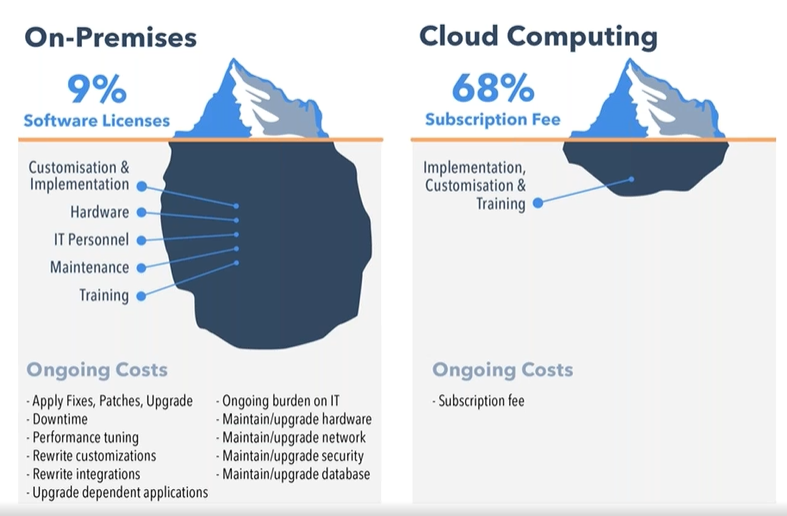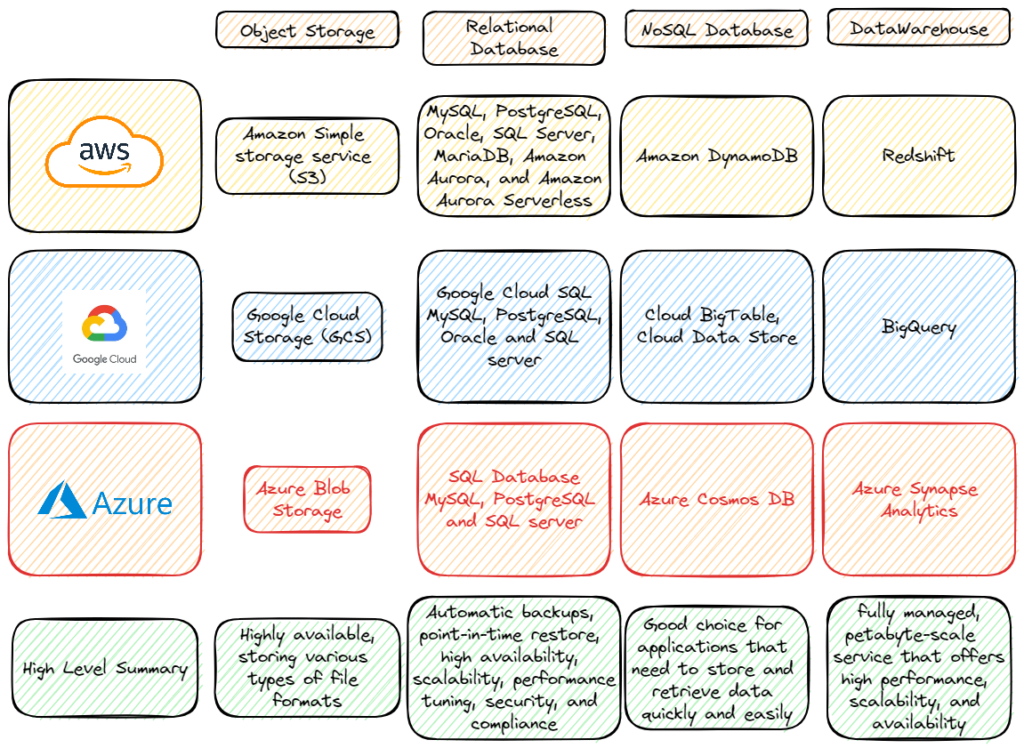Operational Database vs. Cloud Services Databases: A Comparative Analysis

In today’s data-driven world, businesses face a plethora of critical decisions when it comes to managing their data. The dichotomy between operational databases like Hadoop, Teradata, IBM DB2, Oracle, and cloud services databases offered by major providers like AWS, GCP, and Microsoft Azure presents a complex landscape. Traditional operational databases have been widely used, but the allure of cloud databases is growing rapidly. Let’s unravel this intricate web, examining why companies are veering towards cloud databases and how they stack up against on-premise stalwarts.

- Embracing Cloud Databases for Scalability and Flexibility: Cloud services databases offer an unparalleled fusion of scalability and flexibility, allowing businesses to morph effortlessly with their fluctuating data demands. For robust SQL solutions, AWS’s Amazon RDS, GCP’s Cloud SQL, and Azure’s Azure SQL Database provide managed and intelligent offerings. In the NoSQL landscape, AWS’s Amazon DynamoDB, GCP’s Google Cloud Spanner, and Azure’s Cosmos DB present horizontally scalable and globally distributed options, making scaling a breeze. This vast array of options contrasts starkly with the more rigid, traditional operational databases like Hadoop and Teradata.
- Enhanced Data Security and Reliability: Cloud giants like AWS, GCP, and Microsoft Azure have been steadfast in bolstering their data security. Advanced data encryption, rigorous access controls, and fail-safes against disasters are the order of the day. On-premise solutions like IBM DB2 and Oracle may offer greater control, but at what cost? The cloud’s promise of shedding the responsibility of maintaining infrastructure is tempting.
- Cost Efficiency and Operational Efficiency: The world of operational databases, with their hardware investments and relentless maintenance, seems almost archaic compared to the nimble, cost-effective cloud alternatives. Pay-as-you-go models and operational streamlining, features inherent to AWS, GCP, and Microsoft Azure, have relegated the likes of Teradata and Oracle to ponder their future. Cost optimization tools and services further tilt the scales in favor of cloud databases.
- Accelerating Data Insights and Advanced Analytics: There’s a buzz about analytics, and cloud databases are at the forefront. AWS’s Amazon Redshift, GCP’s Google BigQuery, and Azure’s Synapse Analytics are names synonymous with advanced analytics. While operational databases like Hadoop have their niches, the versatility and integration capabilities of cloud databases with AI/ML tools is a glimpse into the future of data-driven decisions.
As businesses strive for sustainable growth in the digital age, the choice between an operational database and cloud services databases becomes critical. The advantages of cloud databases, including scalability, security, cost efficiency, and advanced analytics, make them an attractive option for organizations looking to future-proof their data infrastructure. By embracing cloud databases offered by major providers, businesses can unleash the power of data and achieve sustainable business growth in a rapidly evolving landscape.
The tussle between operational databases like Hadoop, Teradata, IBM DB2, Oracle, and the cloud offerings from AWS, GCP, and Microsoft Azure is a nuanced one. Both sides have their merits and shortcomings, but the wind seems to be blowing in the cloud’s direction. Factors like data volume, performance requirements, budget, and data governance policies must not be overlooked in this pivotal decision.
Remember, the decision between an operational database and cloud databases should align with the specific needs and goals of your organization. It is essential to evaluate factors such as data volume, performance requirements, budget, and data governance policies to make an informed decision that drives long-term success.
At Datamirai, we specialize in helping businesses navigate the realm of data engineering and guide them towards the most suitable database solutions, including AWS, GCP, and Microsoft Azure offerings. Contact us today to explore how we can assist you in optimizing your data infrastructure for sustainable growth.